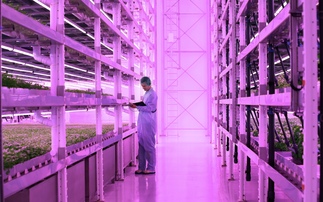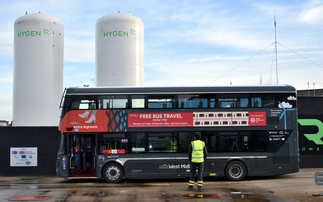The potential for clean energy and transport using hydrogen is huge, and the UK is working to realise it
Renewable technology has made great strides to become more sophisticated, with new ways to harness resources becoming available every day. As Europe moves toward reducing carbon emissions, with strict reduction targets to achieve by 2020, the door has been opened for wide adoption of hydrogen technology in particular.
Hydrogen (H2) has been used in industrial applications for more than 100 years, and is playing a key role in the global transition to a low-carbon economy. It is the most commonly occurring chemical element in nature while being particularly environmentally friendly, giving it enormous potential for zero-emission mobility.
The profile of H2 as an environmentally friendly energy carrier is growing due to its large operating range and quick refuelling capabilities. H2 fuelling is seeing a surge in popularity, and there are currently some 200 H2 refuelling stations in operation around the world with concrete plans for 100 more in Japan and another 68 stations in California, both by 2016, plus 400 more within 2023 in Germany. These regions have been pioneers in H2 fuelling, with a number of stations, in many cases supported by a push for further initiatives including pilot programs creating and storing hydrogen for fuelling made from renewable sources including wind power stations.
In the UK, a significant number of the technical challenges to getting H2 into vehicles have been addressed and key industry stakeholders and the UK Government are focusing on how to roll out this new fuel and vehicle technology to the mass market.
Leading the effort in addressing the many challenges and issues to rolling out hydrogen fuel cell electric vehicles is UK H2 Mobility, a joint project involving key stakeholders including the industrial gas industry, OEMs, the UK Government and refuelling infrastructure providers. BOC, a member of The Linde Group, is an active member of the UK H2Mobility project and is playing a key role in helping to make a nationwide H2 refuelling network in the UK a reality.
BOC's Hydrogen fuelling station at the Honda of the UK Manufacturing site in Swindon was the first public-access H2 refuelling station to be opened in the UK. This was a result of a collaboration led by BOC, alongside partners including Honda of the UK Manufacturing and economic development company, Forward Swindon. When it was installed in 2011, this was the UK's first full-fledged 700bar H2 filling station and more have begun operation around the country since.
As more major manufacturers introduce hydrogen cars, the potential for more fuel cell cars on the roadways is ripe. This was realised with the introduction of this year's HyFive project, sponsored in part by the Mayor of London's Office, which aims to make greater strides in introducing H2 vehicles in major European cities including the Capital.
The agreement will see the deployment of 110 hydrogen fuel cell vehicles across European locations including Copenhagen, Munich and London, and the development of new clusters of hydrogen refuelling stations. Touted by Mayor of London Boris Johnson as a key development in making hydrogen a more viable option for London motorists, it is hoped that this will enhance the public's knowledge and demonstrate the viability of H2 vehicles.
The Linde Group was one of the participants of HyFive, and we are proud to be a part of this landmark project. With more than a century of working with hydrogen, we have become the largest global provider of hydrogen plants and a leading supplier for fuelling technologies.
Linde is the only industrial gas company with proprietary technologies and in-house development for H2 fuelling systems, such as the easy-to-maintain ionic compressor. In addition, Linde has recently expanded its manufacturing centre in Austria to a serial production capability that is necessary to meet the growing global demand for its novel H2 refuelling and compression technologies.
We firmly advocate hydrogen fuelling and hope that, through projects such as HyFive, Britain can begin to see the wider benefits of H2 fuelling and, hopefully, adapt as readily as continental Europe.
The future is bright for hydrogen fuelling, and the industry is reaching a stage where ‘just' opening a hydrogen refuelling station is no longer ground-breaking. As clean technology companies and auto manufacturers continue to make strides in the hydrogen infrastructure, the mind-set will become more widespread and more hydrogen-powered cars, as well as a need for more fuelling stations, will be apparent on British roadways.
Nick Rolf is business development manager - innovation at BOC, part of The Linde Group







